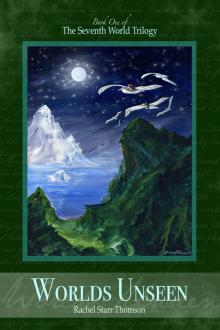Genre - Other. You are on the page - 585

Professor Carbonic was diligently at work in his spacious laboratory, analyzing, mixing and experimenting. He had been employed for more than fifteen years in the same pursuit of happiness, in the same house, same laboratory, and attended by the same servant woman, who in her long period of service had attained the plumpness and respectability of two hundred and ninety pounds.[Illustration: The electric current lighted up everything in sight!] "Mag Nesia," called the professor. The

ue of a pretended secret marriage between Charles Stuart and Lucy Walter - it was possible that this Monmouth who now proclaimed himself King of England was not even the illegitimate child of the late sovereign. What but ruin and disaster could be the end of this grotesque pretension? How could it be hoped that England would ever swallow such a Perkin? And it was on his behalf, to uphold his fantastic claim, that these West Country clods, led by a few armigerous Whigs, had been seduced into

, would have been in the alley by now, forcing a full confession from whoever was skulking in the shadows. Pity the fellow caught by her fierce questions. But Maggie was not Pat, and Pat was far away in Cryneth. She kept walking."Maggie Sheffield?" It was a trembling voice, old, and strangely familiar. It was deep with illness. Maggie turned slowly to see a small, hunched old man step out from the shadows. He stood silhouetted against the fence, and Maggie could not see his face or

ulled up at the kerb.The driver leant over the shining apron which partially protected him from the weather, and shouted: "Is Miss Beale there?" The girl started in surprise, taking a step toward the cab. "I am Miss Beale," she said. "Your editor has sent me for you," said the man briskly. The editor of the Megaphone had been guilty of many eccentric acts. He had expressed views on her drawing which she shivered to recall. He had aroused her in the middle of the

ill at first be astonished at your question. He is a soldier, he has taken the oath, and it is his duty to fulfil the orders of his commanders. If you tell him that war--i.e. the slaughter of men--does not conform to the command, "Thou shalt not kill," he will say: "And how if ours are attacked--For the King--For the Orthodox faith?" (One of them said in answer to my question: "And how if he attacks that which is sacred?" "What do you mean?" I asked.

of the slaves, or to march to Mexico--see if I would go"; and yet these very men have each, directly by their allegiance, and so indirectly, at least, by their money, furnished a substitute. The soldier is applauded who refuses to serve in an unjust war by those who do not refuse to sustain the unjust government which makes the war; is applauded by those whose own act and authority he disregards and sets at naught; as if the state were penitent to that degree that it hired one to scourge